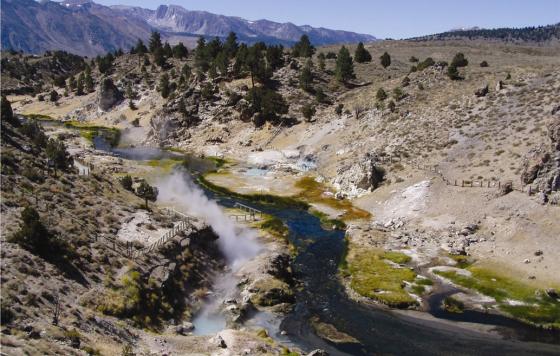It’s not often that I’m pleased to see our lawmakers speed-up the legislative process, because it can mean special interests, such as oil and gas companies, are able to unduly wield influence behind closed doors.
With Senate Bill 380, however, Senator Fran Pavley (D-Agoura Hills), a staunch supporter of environmental protections, has acted quickly to try and prevent another disastrous natural gas leak at Aliso Canyon, thereby protecting the health of nearby residents and the environment. SB 380 will also buy time to fix the larger problem of weak and non-existent regulations that allowed this disaster to happen in the first place. On Monday, February 22, I testified in support of the bill at a hearing of the Assembly’s Utilities and Commerce Committee. You can watch my testimony (which begins at 36:50) or just take in the whole hearing, here.
During my testimony, I highlighted great reporting by Associated Press (AP) journalists Brian Melley and Ellen Knickmeyer, and read a quote from a former official at the Division of Oil, Gas and Geothermal Resources (DOGGR), in Knickmeyer and Melley’s article published Jan 28: "There are no rules that prevent it or no law that prevents you from doing what they were doing."
The gas leak at Aliso Canyon started Oct. 23 when a well drilled in 1953 failed. During the 16 weeks it was uncontrolled, it forced the relocation of 5,600 families, led to the temporary closure of two public schools, and emitted greenhouse gases into the atmosphere, equivalent to the annual emissions of 450,000 cars.
A scientists' report published late last week confirmed Aliso Canyon as "the worst man-made greenhouse-gas disaster in U.S. history."
Senator Pavley’s bill places a moratorium on injecting natural gas into Aliso Canyon gas storage wells and requires DOGGR to test and evaluate all wells for structural integrity. New injections could only resume if well integrity is proven "to prevent damage to life, health, property, and natural resources and other requirements"
“Now that the leak has finally been sealed, there can be no haste to return to business as usual,” Pavley wrote on her website. “Residents are preparing to return home and they’re asking me, ‘Is it safe? How do I know it won’t happen again?’ They want to make sure we have their back. This is a measured bill and a valid response to the real concerns of real people.”
The absence of sensible regulations allows some pretty shocking practices at Aliso Canyon and other gas storage facilities: Southern California Gas Co. (SoCal) was sending gas not only through the main inner tubing of its wells, but highly pressurized gas was also sent through the outer casing of its wells, with no protection. According to the AP, the Alison Canyon wells “were being taxed near capacity in the days and months before the blowout, even as SoCal gas sought to increase the rate of pumping.” By the company’s own admission, the infrastructure is so old at Aliso Canyon that there is corrosion in the wells, and there have been repeated leaks. The regulatory weaknesses are supposed to be addressed in a separate process by DOGGR, as they prepare to revise (and hopefully greatly strengthen) gas storage regulations, but SB 380 is needed to immediately address Aliso Canyon problems.
SoCal Gas has adopted no formal position, publicly, on SB 380, but reporter Paige St. John at the Los Angeles Times has done a great job of contrasting the public position of the company with its behind-the-scenes efforts to recruit allies to lobby against the bill.
A key component of getting SB 380 passed is for the California Independent System Operator (Cal ISO), the California Energy Commission, and the California Public Utilities Commission to determine whether the bill won’t threaten regional energy reliability. In other words, it will make sure Aliso Canyon can stay closed without the likelihood of power shortages, otherwise known as “brownouts” occurring. The agencies anticipate the assessment will be completed by mid-March.
If the bill makes it to the Assembly floor, we’ll encourage our members and the public to ask their Assembly members to strongly support the bill. It should be a no-brainer, but these days you never know.



